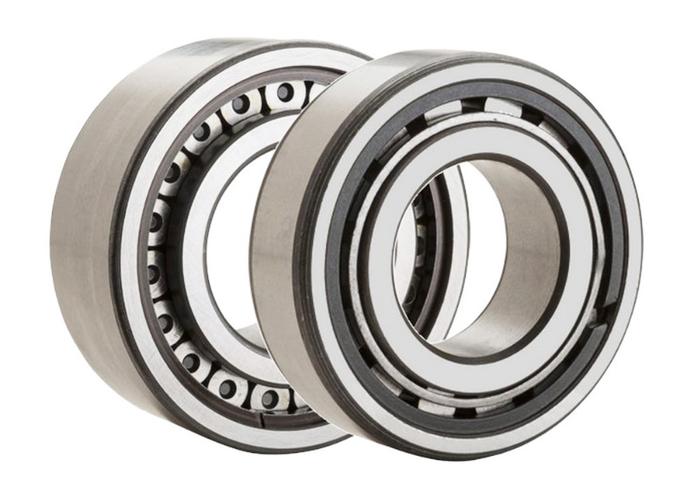Top Automotive Bearing Manufacturers: A Comprehensive Guide to Quality and Reliability
Automotive bearing manufacturers play a critical role in ensuring vehicle safety, performance, and longevity. These specialized components reduce friction between moving parts, withstand extreme loads, and maintain precision in harsh operating conditions. Leading manufacturers combine advanced engineering with stringent quality control to meet global automotive industry standards.
Table of Contents
1. top automotive bearing manufacturers2. high-performance automotive bearings
3. automotive wheel bearing suppliers
4. durable automotive bearing solutions
5. custom automotive bearings manufacturers
1. Top Automotive Bearing Manufacturers

The automotive industry relies on trusted manufacturers like SKF, NSK, and Timken for precision-engineered bearings. These industry leaders employ advanced metallurgy and surface treatment technologies to produce components that meet OEM specifications. SKF's Explorer series, for instance, offers 30-50% longer service life through superior heat treatment processes. Manufacturers must comply with ISO/TS 16949 quality standards while implementing automated inspection systems for dimensional accuracy within 2-micron tolerances. Recent developments include hybrid ceramic bearings for electric vehicles, reducing weight by 40% while handling 15% higher RPMs compared to traditional steel bearings.
2. High-Performance Automotive Bearings
High-performance bearings utilize specialty alloys like M50 tool steel or silicon nitride ceramics to operate in temperature ranges from -40°C to 300°C. Racing applications demand angular contact ball bearings with modified raceway geometries that handle combined radial and axial loads up to 10,000N. Advanced lubrication systems incorporate PAO-based greases with PTFE thickeners, maintaining viscosity stability across 150,000-mile service intervals. Manufacturers now implement finite element analysis (FEA) to optimize load distribution, reducing stress concentrations by 25% in high-torque applications.
3. Automotive Wheel Bearing Suppliers
Modern wheel bearing units integrate ABS sensors and sealing systems in compact Generation 3 designs. Leading suppliers like NTN produce hub assemblies supporting vehicle weights exceeding 2,500kg while maintaining 0.99mm axial play tolerance. New seal technologies combine triple-lip designs with fluoroelastomer materials, achieving IP69K waterproof ratings. Suppliers must provide comprehensive technical documentation including FMEA reports and NVH test data. The market sees growing demand for integrated wheel bearings with built-in torque sensors for advanced driver-assistance systems (ADAS).
4. Durable Automotive Bearing Solutions
Durability enhancements focus on surface engineering techniques like plasma nitriding, creating 0.1mm hardened layers with 1,200HV hardness. Salt spray testing protocols verify 500-hour corrosion resistance for coastal environments. Heavy-duty tapered roller bearings now feature asymmetric roller profiles that increase dynamic load ratings by 18%. Manufacturers employ accelerated life testing using FAG FE8 test rigs, simulating 10-year service conditions in 300-hour cycles. Case hardening processes achieve 58-62 HRC core hardness while maintaining 25% retained austenite for impact resistance.
5. Custom Automotive Bearings Manufacturers
Customization services include bore diameters from 10mm to 500mm with non-standard P6 precision tolerances. Prototyping capabilities utilize 5-axis CNC grinding machines achieving Ra 0.1μm surface finishes. Special applications require bearings with 316 stainless steel construction for chemical resistance or Inconel 718 for extreme temperature environments. Manufacturers offer CAD-integrated design services, producing 3D-printed prototypes within 72 hours. Recent projects include low-noise bearings for electric vehicles achieving <20dB operation through optimized cage designs and surface waviness control below 0.3μm.
From precision-engineered wheel bearings to custom solutions for electric vehicles, automotive bearing manufacturers continue pushing technological boundaries. Understanding these five key aspects—top manufacturers, high-performance designs, reliable suppliers, durability enhancements, and customization options—empowers businesses to make informed procurement decisions. The evolving landscape demands components that balance cost-efficiency with advanced technical specifications, whether for mass-market production or specialized automotive applications.
Final Thoughts
Selecting the right automotive bearing manufacturer requires careful evaluation of technical capabilities, quality certifications, and R&D investments. As vehicle technologies advance, partnerships with innovative suppliers become crucial for maintaining competitive advantage in the global automotive market.




 13869596835
13869596835